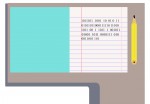As with most other things in life, students only want to do the schoolwork they’re going to get credit for.
Which is why academic blogs need to start getting the weight in course grades that they deserve.
Although blogs have the potential to be good resources for teachers and students alike, their current use at UCLA is lacking. Students are often not awarded a significant amount of credit for participation in blogs and therefore the full benefits of academic blogging are not realized.
A new study put out by the University of Michigan compared the content and quality of writing journal entries versus blog posts in an academic setting. The same class was taught two terms in a row by the same professor with the same syllabus – the only difference was that one class was assigned to do their reading reflections in a journal format and the other a public blog.
The study found that students are more likely to take a position on controversial issues and to take intellectual risks in blogs than in private journals or assignments, although they are also less likely to take emotional or personal risks in their writing. Developing the ability to take and defend stances is one of the most useful skills students can learn in academic writing.
Perhaps even more salient for the use of blogs in an academic setting is the fact that blogs are an increasingly important medium of expression in a digital age. Teaching students how to write blog posts prepares them to step into a world where blogs play a larger role than ever before.
However, for blogs to be effective tools in a classroom setting at UCLA and elsewhere, they need to be given more emphasis and credit in core writing classes. Classes in the English department, as well as other academic departments where papers and writing are highly emphasized, should work to incorporate blog writing as a part of the curriculum.
Additionally, it cannot only be required that students post their own thoughts but also that they interact with and comment on other posts. Without these comments there is not as much extra benefit to the blog compared to a traditional journal or assignment.
The interaction is important because the study found that blogs encourage students to be more opinionated on controversial issues and to develop intellectual ideas. This type of writing is important in developing analytical and critical thinking skills.
There is one risk in including blogs as part of curriculum.
Blogs are often considered relatively casual formats compared to other forms of academic writing, which means students could be less likely to take them as seriously as assignments in an academic setting. But if they are implemented in a classroom with the same weight that an essay would be given, students will respond with appropriate attention and effort.
Sam Nowak, a graduate geography student and teaching assistant in the geography department, used a blog as part of reading reflection to teach his discussion sections of Globalization: Regional Development and World Economy, in winter quarter 2015.
Although students didn’t interact much with each other, Nowak was able to gauge the students’ understanding before section and modify his lesson plans from there. Students were also more prepared for section because they were forced to think about the reading in some capacity before entering the classroom, Nowak said.
Students didn’t interact on the blog site because they were not awarded any credit for commenting on or engaging with classmates, he added.
First-year biology student Briana Belmonte was in one of Nowak’s discussion sections. She didn’t look at others’ blog posts past the first week or two, she said, and just tried to get her post up to fulfill the class requirement.
But making blogs an integral part of the curriculum, as opposed to a section requirement worth a minimal portion of a student’s grade, could change that outcome.
Significant credit and academic rigor are important keys to making the blogs successful. Therefore professors must structure their blog assignments appropriately to get the best work out of student blogs.
An academic blog can provide a combination of individual critical thinking and peer interaction, maximizing student learning.
